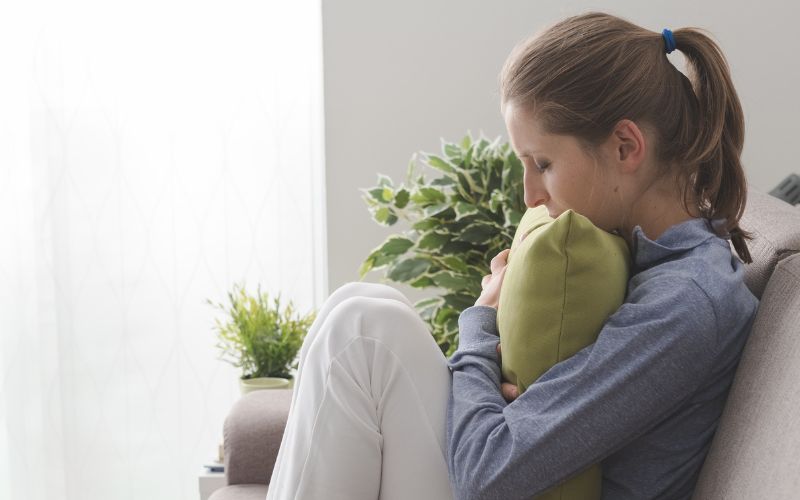Losing Friends - Why Does It Happen?
Friendship Breakup | By: Katie Lister
January 26, 2024
Are you losing friends? What can you do to stop losing friends? Why do we lose friends? We have all lost friends at some point in life. Is there anything we can do to prevent losing friends? If you ask yourself these questions, you are in the right place.
Hi, my name is Katie Lister. I am a practicing Registered Nurse and the founder of Growth Gals, a supportive network where women can offer advice, get advice and find support from fellow women even as they navigate everyday life. Losing friends is one of the many things women go through in life.
Losing friends is a traumatic experience, yet it happens a lot. This article will give you more information about why people lose friends, whether it’s normal, and how to cope when in this situation.
Table of Contents

Katie Lister
Written by Katie Lister, RN, BScN. An experienced Registered Nurse, Group Facilitator, Life Coach, and Community Leader. Read Katie's Full Author Bio
Why Do People Lose Friends?
People lose friends for many reasons. According to studies, being connected to others consistently determines our happiness. When we have strong connections, our bodies release oxytocin, a hormone dubbed the fountain of youth. This hormone improves our mood and helps us manage our emotions. It also lowers stress levels and gives us confidence to handle challenges.
Friends may drift apart due to various life changes, such as moving, career transitions, or starting a family. According to studies, we lose about half of our friends every seven years. It’s natural for people to change, grow, and desire different things, which can affect friendships. While some friends may embrace these changes, others may not, and that’s perfectly acceptable.
Losing Friends - Is it Normal?
Yes, it is normal to lose friends as we go through different stages of life. As mentioned, friendships can change and evolve due to various factors such as distance, life circumstances, personal growth, or shifting priorities.
It is natural for friendships to come and go. Even best friends breakup. The friends you had in high school may not be the same ones you have when you are in college. Building new connections and nurturing existing relationships can help you to maintain a close-knit social circle.
A recent study by the University of Oxford in England and Aalto University in Finland revealed that our circle of real friends shrinks as we age. This decline in social connections begins in our mid-20s as we start to identify and prioritize the most important relationships. With limited time due to work and family responsibilities, we naturally invest more time maintaining close friendships than forming new ones.
When is it Not Normal to Lose Friends?
While losing friends is okay, it might not be normal if you keep losing many friends. Here are some common reasons why people lose friends.
You only take
If you take and never give, your friends will leave. Friendships are symbiotic, and you have to give as much as you receive. If every friend you find gives a lot but feels like the relationship is one-sided, they will leave. If you are losing friends at an alarming rate, it’s time to introspect.

You are jealous
Jealousy is normal, but too much of it can be unhealthy in friendships. This is because it can lead to harmful behaviors like controlling our friends or lashing out. Feeling jealous when your friend spends time with someone else doesn’t make you a bad person. It means you need to understand the root cause of your issue such as low self-esteem or insecurity.
You have psychological issues
You might have deep-seated psychological issues, such as your attachment style. The attachment theory states that how you bond with your primary caregiver determines how you navigate relationships. The four attachment styles are:
- Secure: Very secure, feel safe, stable, and content in close relationships.
- Avoidant: Find it extremely difficult to put up with emotional intimacy. These people value their freedom and feel stifled by closeness.
- Anxious: Very needy, anxious, uncertain, and lacking self-esteem. They desire emotional intimacy and worry that close friends don’t want to be with them. They also fear abandonment.
- Disorganized or fearful-avoidant style stems from fear caused by childhood trauma, abuse, or neglect. Adults with this attachment feel they don’t deserve love.
The last three attachment styles above are known as insecure attachment styles and can negatively impact your friendships and other relationships.
Losing Friends: What are the Signs?
Identifying the signs of losing close friends can help you prepare for the change. Here are some of the signs to look out for:
Having deep conversations is a struggle
In healthy friendships, it is natural to have deep conversations about personal issues. Your best friend is your go-to person for everything from family drama to marital problems. When your friend starts struggling to talk about issues you once easily discussed, it’s a sign that the friendship is dying.
They don’t tell you about significant events.
When something significant happens, the first person you tell is your friend. As a good friend, they have been there as your support system for years. When they start neglecting to tell you about significant events, like a pregnancy, a birth, a wedding, their Christmas plans, and other events, it’s a breakup sign.
You don’t talk as often as before
Some friends end after a major disagreement, but some fade away. When the calls and texts dwindle, especially if it is a long-distance friendship, it’s clear your friend might be moving on.
Your friend avoids commitments.
When old friends avoid making commitments, they lack enthusiasm for the friendship. When you make plans, they avoid making commitments or cancel plans every time you plan something. If you are the one who always initiates plans, you need to re-evaluate the friendship. You could also be dealing with a toxic friend who will never have time for you but shows up when they need something.
They become judgmental
Your friend starts judging your choices, which they previously approved of. For example, they may question your choice to be a stay-at-home mother, which they previously agreed with. They may begin to be irritable with you, and their opinion of you suddenly changes. Your friend behaves differently and feels you are no longer the type of friend they want, but can’t tell you.
They no longer invite you anywhere.
It hurts when your friends post photos of events you were never invited to on social media. They brush it off on inquiry or try to gaslight you that they told you about it. This indicates they do not want to hang out with you.
Learn how to stop obsessing over a lost friendship here.

How do I cope with loneliness After Losing Friends?
As social creatures, humans thrive in relationships and communities. Occasionally, feeling lonely is normal, but prolonged isolation can harm your mental and physical well-being. It can increase stress levels, trigger anxiety and depression, and raise the risk of heart disease and stroke. Here is how to cope with feelings of loneliness:
Accept the pain
Accept that it hurts. The pain of losing a friend with whom you once shared your deepest thoughts is profound. Grieve for the lost friendship for as long as you need to. If you tried to make up after a nasty disagreement and it didn’t work, move on. You tried your best.
Prioritize yourself
Pay attention to yourself by practicing self-love and self-care. Lost friendships are painful but normal. Do all the things you love and try to venture into new things. Go for a solo spa date or trip, take a pottery or painting class, or go camping or mountain climbing. If something makes you happy, do it.
Speak positive affirmations
It’s easy to spend hours thinking about the past, reliving the mistakes and worsening loneliness. Speak positive affirmations to yourself and show kindness like you would to a friend.
Learn how to relax
Learning relaxation techniques such as meditation, yoga, or tai chi relieves anxiety, tension, and stress. If you are away from home and missing your family members, use guided imagery meditation to relieve stress. Guided imagery uses your imagination, allowing you to visualize peace and happiness to relax your mind and body.
Make new friends and strengthen your other friendships
Make room for personal growth and make new friends by attending social events. Strengthen the bond with your other friends. Try to speak to them and get to know them better; you might get new true friends or real friends in the old ones. Take it slow the first time, and don’t rush the friendship. They might not be the kind of friends you are looking for, which is okay. The right friends will come along.
Talk to Someone
Talking to a therapist will help you know your attachment style and uncover past traumas. You will also learn how to spot fake people, why you choose the types of friends you do, and how to deal with a toxic friend. If you cannot afford a therapist at first, start by talking to your loved ones and use them as sounding boards.
Learn more on how to stop being friends with someone and move on in this article.
Growth Gals Can Help After Friendship Loss!
This guide goes out to women striving to become a better version of themselves! If you are on a path of self-discovery, Growth Gals is an encouraging community of women who can assist you with losing friends.
Follow @growthgals_ on Instagram to stay updated on our journals, coaching, and support groups. Be sure to check out our newsletter for the latest tips and tricks on personal growth. Join us now and start your journey towards self-improvement and dealing with losing friends.

Final Thoughts
Losing friends is normal. Friendships fade as we grow older and have more responsibilities. Sometimes, we fight, leading to a friendship breakup; sometimes, we drift apart. Evaluate your friendships, determine why they ended, and talk to someone to get closure. Join us at Growth Gals today!

